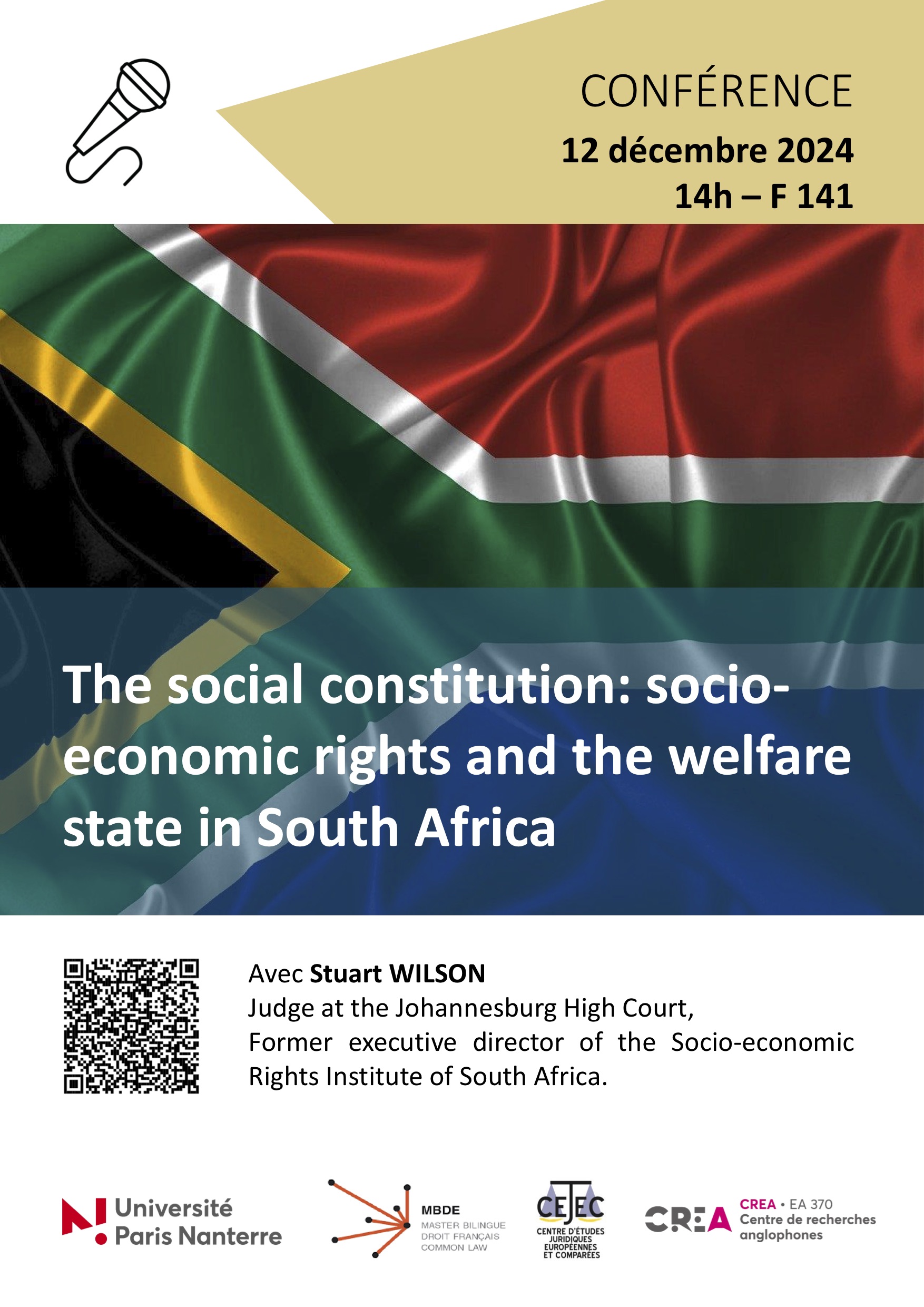Version française / Séminaires
"The Social Constitution: Socio-economic rights and the welfare state in South Africa"
Publié le 26 novembre 2024
–
Mis à jour le 12 février 2025

Date(s)
le 12 décembre 2024
14h
Lieu(x)
Salle F141, Bâtiment Simone Veil
Stuart WILSON, juge à la Haute Cour en Afrique du Sud, donnera une conférence intitulée: "The Social Constitution: Socio-economic rights and the welfare state in South Africa."
ABSTRACT
ABSTRACT
Cass Sunstein called the Constitution of the Republic of South Africa, 1996 “the most admirable constitution in the history of the world”. The South African Constitution is often praised for its broad dissemination of political power and for its recognition of social and economic rights. However, the years since its adoption have coincided with greater inequality and the systemic weakening of the South African state through corruption and bureaucratic malaise. Thomas Piketty says that land reform has been abandoned, and Samuel Moyn cites South Africa’s adoption of socio-economic rights as evidence for his thesis that rights cannot bring about greater economic equality. In light of all this, is the South African Constitution really all that admirable? In my talk, I want to suggest that it is, but in in ways that have been overlooked. I want to argue that the Constitution has arrested deepening poverty, largely through encouraging expanded access to land, healthcare and social security. It is true that, in common with every other significant legal system throughout the world, the Constitution has not yet been able to restructure the economic relationships that have deepened inequality under late capitalism. But I have reason to think it might yet contribute to that sort of endeavour, at least by limiting the extent to which the South African state is permitted to manage the economy through resort to destructive programmes of austerity.
Partenaires :
Une conférence organisée par le Centre d’études juridiques européennes et comparées (CEJEC) et l'Observatoire de l'aire britannique (OAB).
Mis à jour le 12 février 2025
Contact :
staylor@parisnanterre.fr












